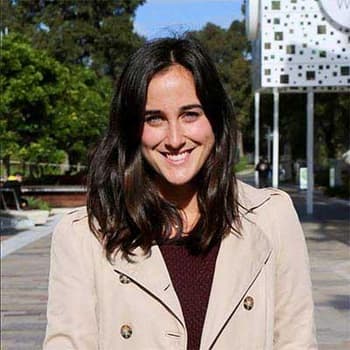While there is currently no one cure for PTSD, many treatments are effective in addressing symptoms. Learn more about treatments available for PTSD.
Many people living withpost-traumatic stress disorder (PTSD)are unsure if thereis a cure for PTSD. Whilethere isno definitive cure for PTSD, there are many treatment options for PTSD that can help reduce symptoms and distress related to the condition and allow a person to return to their regular activities. Based on current knowledge and treatment options, mostPTSD symptomscan be alleviated with treatment. In addition to current treatment options, there is ongoing research looking for new ways to treat symptoms and establish an effectivePTSD cure.
PTSD Treatment Options
There is a range ofPTSD treatment optionsavailable, and selecting the best treatment strategy can depend on the severity and type of trauma experienced. Effective treatment usually begins with assessment and diagnosis of PTSD by a qualified professional, based on the outlined criteria in the fifth edition of the Diagnostic and Statistical Manual (DSM-5).
Key symptoms of PTSD can include intense fear, anger or panic in reaction to a trigger. Typically, treatment aims to reduce the fear associated with triggers. This fear reduction can be accomplished either by addressing problematic thoughts or problematic behaviors.
PTSD treatmentcan be a lengthy and challenging process. The type of treatment strategy that works best can depend on the type of trauma, the presence of other psychiatric conditions and the severity of PTSD symptoms. Treatments should be both discussed and administered by a trained professional.
- Cognitive Behavioral Therapy.Cognitive behavioral therapy(CBT) for PTSDinvolves developing new thought patterns and strategies surrounding a traumatic experience. More specifically, CBT includes recalling or thinking about a traumatic event and remembering the details and feelings of the experience. Then, individuals are taught new thought and behavioral techniques to manage anxiety surrounding the trauma. Cognitive restructuring can include changing thought patterns to highlight that there is no current or ongoing threat and that a trigger or experience does not need to cause ongoing panic or distress.
- EMDR.Eye movement desensitization reprocessing(EMDR) therapy for PTSDiseffectivein military and non-military groups. The treatment includes remembering a traumatic experience and holding the thought of that experience. At the same time, a person will focus on an external object — usually, a finger or hand moving from side to side — which they will track with their eyes. It’s understood that recalling traumatic memories duringEMDR treatment for PTSDallows the thoughts to be “re-remembered” with different and less distressing information.
- Exposure Therapy.Exposure therapy for PTSDis a common treatment strategy for improving reactions and symptoms related to trauma. A popular type ofexposure therapyisprolonged exposure therapy for PTSD. This treatmentincludesremembering, describing and discussing the traumatic experience out loud and being exposed to situations that would typically be linked to the trauma. Through this process, trauma can be reprocessed, gradually removing distressing associations from the memory. In some modern exposure therapies, virtual reality is used to expose patients to situations or objects.
- MDMA.MDMA is most commonly known as a recreational drug. However, it has been trialed as a treatment for PTSD. MDMA may havebenefitsforPTSDas it allows people with the condition to more easily recall memories of their trauma without feeling overwhelmed or panicked by them. Like other therapies,MDMA therapy for PTSDcan help to recall and reprocess traumatic memories, removing some of the panic and fear associated with them.
Recovery from PTSD
PTSD recoverycan look different for everyone. Depending on the type and severity of the trauma, PTSD may follow arapid, slow or non-remittingrecovery trajectory. Recovery from PTSD can be a challenging process, but seeking professional diagnosis and treatment can help reduce levels of distress and encourage a return to normal functioning.
PTSD statisticsshow that50%of cases recover within two years, and over three-quarters recover within ten years. These statistics can also be impacted by the type of trauma experienced.PTSD prognosisis also influenced byother factorssuch as social support, community engagement and resilience building.
Recovery may also mean different things to different people. For some, recovery may include being free from reliving or experiencing memories of a traumatic experience. For others, recovery means that they feel equipped with skills and strategies to manage any memories they may experience.
PTSD Treatment Advances: How Close Are We to a Cure?
Treatment for PTSD has come a long way, and increased understanding of the cognitive, biological and psychological aspects of trauma has informed new ways to treat PTSD.PTSD treatment researchis ongoing, and scientists are looking for new ways to improve PTSD symptoms and shorten recovery times.
PTSD studies examining theeffects of MDMA and cannabisin treating the condition are ongoing, with some evidence that they might be effective in some patients. OtherPTSD researchinvolves investigating howgeneticsmight be able to help predict what types of medication someone with PTSD might respond to, or howtargeting specific regions of the brainlinked to the fear response can improve treatment.
There are many challenges in treating PTSD, including many people not seeking treatment. Mental health is complex, and unlike physical illness, there is often not one clear cause. Because of this, it can be difficult to establish a single cure for PTSD. Despite this, current treatments and ongoing research hold promise that PTSD can be treated in a timely and effective manner.
If you or someone you love is suffering fromPTSD and a co-occurring substance use disorder,contact The Recovery Villagetoday to discuss available treatment options.
















